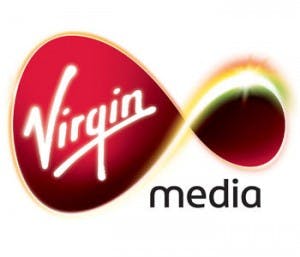Dan Loeb, the famous hedge fund manager, delivered quite a strong annualized return of 15.4% in the past 15 years, leaving the S&P 500’s annualized return of only 4.5% during the same period in the dust. In the first quarter of 2013, he purchased a lot of shares in Virgin Media Inc. (NASDAQ:VMED). With 11 million shares, Virgin Media became his second biggest position, accounting for 10.1% of his total portfolio. Should we follow him into Virgin Media? Let’s find out.
The formation of the world’s leading cable company

In February, Virgin Media Inc. (NASDAQ:VMED) entered a merger & acquisition agreement with Liberty Global Inc. (NASDAQ:LBTYA), the global leader in Broadband Internet, video and telephony services in Europe. The price tag came in at around $16 billion in equity value and $23.3 billion in enterprise value. In this merger deal, Virgin Media’s shareholders will receive $17.50 per share in cash, 0.2582 Series A shares and 0.1928 Series C shares of Liberty Global. As Liberty Global Inc. (NASDAQ:LBTYA) had around 20 million customers in Europe and Chile, the combined company would be the world’s leader in the cable industry with the highest number of customers of 25 million. Moreover, the synergy would enhance those two business economies of scales, with extreme revenue concentration. Around 80% of its total revenue came from five European markets.
Comcast Corporation (NASDAQ:CMCSA) had a lower number of customers
After the deal, as mentioned above, the combined company would take the world’s leading position away from Comcast. At the end of 2012, Comcast had around 22 million video customers, 19.4 million high-speed Internet customers and 10 million voice customers. In the past five years, while the number of high-speed Internet customers and voice customers has consistently increased, its video customers experienced a consistent decline from 24.2 million in 2008. The Cable Communications segment was still the largest revenue and income contributor of Comcast Corporation (NASDAQ:CMCSA). In 2012, it generated more than $39.6 billion in revenue and $9.85 billion in operating income.
Comcast Corporation (NASDAQ:CMCSA) has returned its cash to shareholders in both dividends and share buybacks. In 2012, it spent around $3 billion to repurchase nearly 96.6 million shares. Moreover, it also paid out $0.65 dividend per share to shareholders. In February, Comcast Corporation (NASDAQ:CMCSA) announced a 20% increase in its quarterly dividend to $0.195, and authorized a share buyback program of as much as $2 billion in 2013, depending on market conditions.
Attractive share buyback plan
Both Liberty Global and Virgin Media Inc. (NASDAQ:VMED) have also been returning cash to their shareholders mainly via share buybacks. In 2012, Virgin Media paid out only £0.10 per share in dividends, while Liberty Global has not paid any dividend yet. Since 2005, both Virgin Media Inc. (NASDAQ:VMED) and Liberty Global have returned more than $10 billion to shareholders. The combined company would expect to do another $3.5 billion of share repurchases in two years upon the deal closing.
Virgin Media Inc. (NASDAQ:VMED) is trading at around $50.40 per share, with a total market cap of $13.70 billion. The market values Virgin Media at around 8.6 times EV/EBITDA. Liberty Global is trading at $75.50 per share, with a total market cap of $19.40 billion. It is valued at 10.3 times EV/EBITDA. Comcast, at $42.70 per share, is worth $112.4 billion on the market. Comcast is valued the cheapest at only 7.7 times EV/EBITDA.




